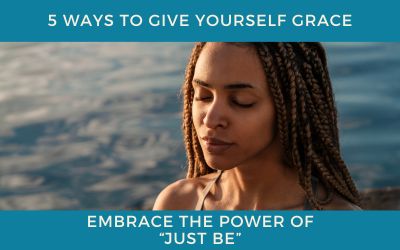
Niksen is a Dutch concept that translates to “doing nothing” or “idleness” in English. It involves embracing moments of purposeless inactivity or taking a break from the constant busyness of life. The term is derived from the Dutch language, where “niks” means “nothing.”
The lifestyle trend of niksen is believed to have originated in the Netherlands, where it aligns with a cultural inclination towards a balanced and relaxed approach to life. While the concept of purposeful idleness isn’t unique to the Netherlands, the Dutch cultural emphasis on well-being, work-life balance, and contentment may have contributed to the popularity of niksen.
The trend gained attention beyond the Netherlands as discussions on mindfulness, stress reduction, and mental well-being became more prevalent globally. Niksen resonates with the idea that taking intentional breaks from productivity can contribute to overall happiness and a healthier lifestyle.
The simplicity and adaptability of niksen have allowed it to become a lifestyle trend embraced by individuals seeking moments of relaxation and respite from the demands of modern life. While the specific origins may not be pinpointed to a particular date or event, niksen reflects a broader cultural philosophy that has gained recognition and adoption beyond its Dutch roots.
Given the hectic nature of our current lifestyles, the notion of intentionally doing nothing might seem counterintuitive. However, the Dutch concept of “niksen” encourages just that – embracing the art of purposeless idleness. While niksen doesn’t come with a strict set of rules, its advocates suggest various ways to incorporate this practice into your routine for stress reduction, relaxation, improved emotional well-being, and combating burnout.
One of the strengths of niksen is its adaptability. Individuals can tailor this practice to suit their unique needs and preferences. Some may find solace in spontaneous moments of idleness, where they allow themselves to simply be without a predetermined plan. These unplanned breaks can arise organically, providing a refreshing pause in the midst of daily activities.
On the other hand, scheduling niksen sessions can be particularly beneficial for beginners or those with tightly packed schedules. By allocating specific time slots for purposeless idleness, individuals can prioritize and safeguard these moments of relaxation. Scheduling niksen doesn’t mean imposing strict guidelines; rather, it’s a way to carve out intentional breaks within the routine.
In essence, niksen invites individuals to embrace the ebb and flow of their own preferences and circumstances. Whether it’s a spontaneous moment of quiet contemplation or a scheduled break on the calendar, the overarching goal remains the same – to step back, relax, and revel in the art of doing nothing.
Niksen-friendly activities
Nature Observation
Spend time in nature without a specific goal. Whether it’s sitting in a park or going for a leisurely hike, let your surroundings captivate you without rushing.
 Listening to Music
Listening to Music
Enjoy your favorite tunes without multitasking. Allow the music to wash over you, paying attention to the melodies and lyrics.
Watching Sunsets or Sunrises
Find a quiet spot to appreciate the beauty of the changing sky. Allow yourself to be immersed in the colors and tranquility of the moment.
Daydreaming
Set aside time for unstructured daydreaming, letting your mind wander without any specific goal. Allow your thoughts to meander freely, exploring the vast landscape of your imagination. Daydreaming can be a powerful way to disconnect from the demands of the external world and tap into your creative reservoir.
People Watching
Find a comfortable spot in a public place and observe the world around you. Watch people go about their daily lives without judgment or analysis. Appreciate the diversity of human experiences and the rhythm of life unfolding before your eyes.
Remember, the key is to engage in these activities without a specific goal or agenda. Letting go of the need for productivity or achievement during these moments is fundamental to embracing the essence of niksen.
What are the benefits of doing nothing?
Stress Reduction and Relaxation
One of the primary benefits of niksen is its impact on stress reduction. In a world dominated by deadlines and constant connectivity, taking time to do nothing allows the mind to rest and reset. By intentionally stepping away from the demands of daily life, individuals can experience a sense of calm and relaxation.
Engaging in niksen can also help regulate stress hormones, contributing to an overall reduction in stress levels. As the mind disengages from the usual stimuli, the body responds by easing tension, promoting relaxation, and creating a more tranquil mental state.
Improved Emotional Well-being
Niksen isn’t just about physical relaxation; it also positively influences emotional well-being. By allowing the mind to wander without a specific purpose, individuals may find a renewed sense of creativity and perspective. This unstructured time can lead to moments of insight and self-reflection, fostering emotional resilience and a deeper understanding of oneself.
Furthermore, incorporating niksen into one’s routine can enhance emotional intelligence. The ability to observe thoughts and emotions without judgment during moments of idleness can contribute to better emotional regulation and increased self-awareness.
Combating Burnout
In the face of burnout, niksen serves as a powerful antidote. Burnout often arises from prolonged periods of stress, overwork, and insufficient rest. Niksen provides a counterbalance by encouraging individuals to step back, take a breather, and engage in purposeless inactivity.
Regularly practicing niksen can prevent burnout by creating a buffer against the relentless demands of a busy lifestyle. It fosters a healthier work-life balance and cultivates a mindset that values both productivity and the essential need for rest.
 Doing Nothing and Your Brain
Doing Nothing and Your Brain
The benefits of doing nothing extend to the brain’s cognitive functions. Allowing the mind to wander during niksen is akin to a mental reset button. This unstructured downtime can enhance creativity, problem-solving skills, and overall cognitive flexibility.
Research suggests that moments of idleness contribute to the default mode network (DMN) activation in the brain, associated with self-reflection and the integration of information. Niksen, therefore, becomes a tool for maintaining optimal brain health by promoting neural plasticity and preventing mental fatigue.
In conclusion, niksen offers a valuable perspective on the importance of purposeless idleness in our hectic lives. By incorporating this Dutch concept into our routines, we can experience reduced stress, improved emotional well-being, and a safeguard against burnout. Doing nothing, it turns out, might be one of the best things we can do for our minds and bodies in the long run.


 Listening to Music
Listening to Music
 Doing Nothing and Your Brain
Doing Nothing and Your Brain
